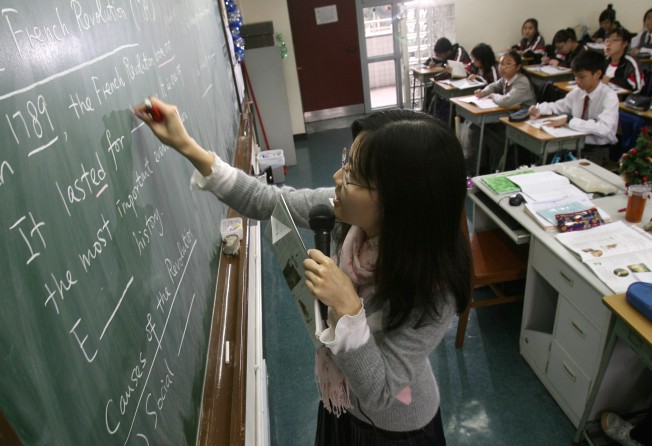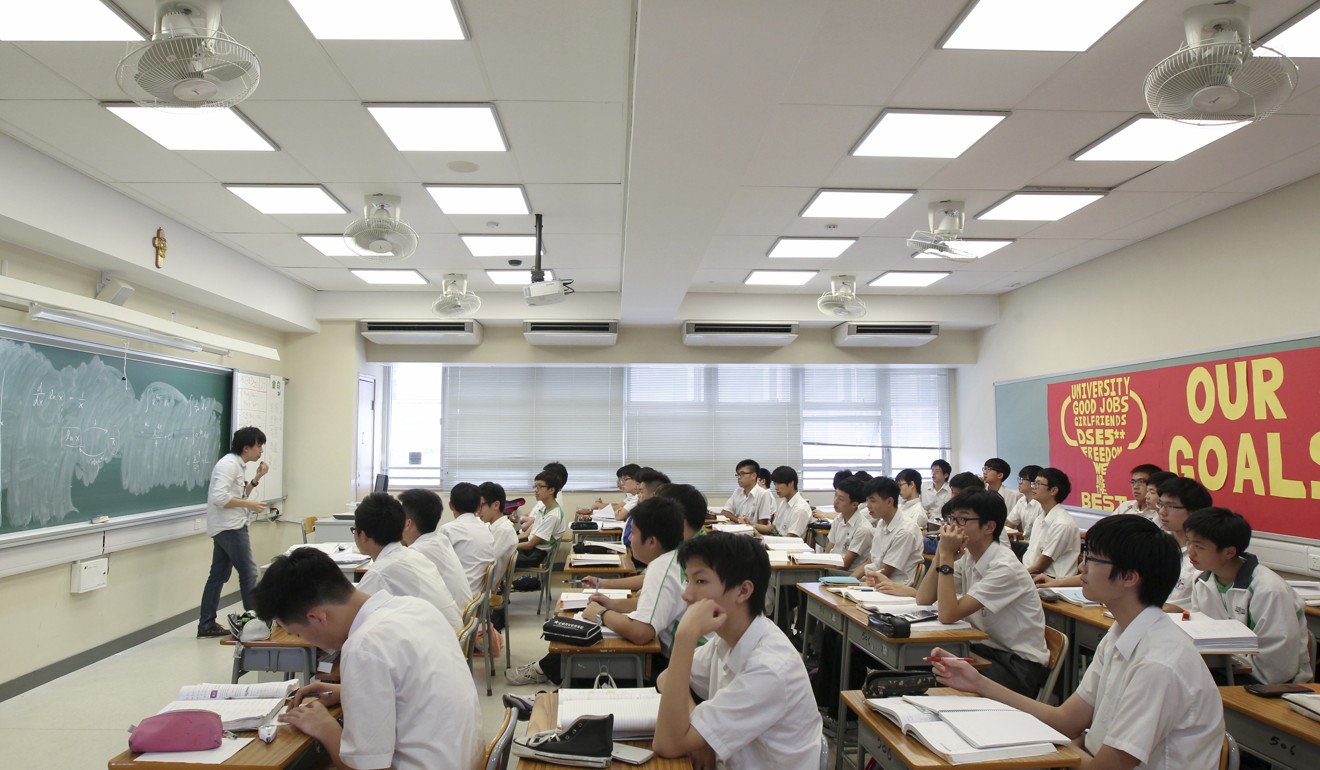Hong Kong’s pro-independence sentiments not ‘directly linked’ to schools, says city’s education chief
But Secretary for Education Kevin Yeung Yun-hung agrees that young need to better understand country’s development

The city’s education minister on Saturday rejected his mainland counterpart’s assessment that the rise of pro-independence sentiments in Hong Kong was “linked directly” to the education system, saying schools were not responsible for the movement.
“Is Hong Kong independence directly related to our education? It’s very hard to say so,” Secretary for Education Kevin Yeung Yun-hung said in a radio show in response to comments by China’s education chief Chen Baosheng last week.
“We do not talk about Hong Kong independence in schools in principle. So, where do the thoughts of Hong Kong independence come from? They definitely do not come from the education system.”
Former Legislative Council president Jasper Tsang Yok-sing also expressed similar reservations. One should not blame all problems on the education system even as it might have a big impact on society, he said on the sidelines of a community event.
Tsang warned that the independence controversy would not die down even if the education system was overhauled.
Both Tsang and Teung were rebutting the view of mainland education chief Chen Baosheng who claimed that such sentiments among young Hongkongers were “surely related” to their education.
Speaking in Beijing last week, Chen proceeded to remind the Hong Kong government of its duty to implement national education in Beijing and called for a stronger sense of national identity among teachers.
Yeung expressed his reservations about the causal link between the education system and the rise of pro-independence sentiments on Saturday morning but he agreed that the bureau could do more in national education.
The young do need to understand the country’s development, he said.
He also dismissed accusations that Chen’s remarks had constituted interference in the city’s affairs or an attempt to put pressure on the government.

In 2012, the government was forced to shelve plans to make national education – intended to strengthen “national identity awareness” and nurture patriotism towards China – a compulsory school subject.
The U-turn came after strong opposition from parents and educators who raised fears that pupils could be “brainwashed”.
Yeung said the government was no longer pushing for the topic to be a compulsory school subject.
National education had already been implemented all along in various forms in schools, including more exchange opportunities in mainland China as to cultivate a sense of national identity, he said.
Recently, a circular inviting schools to show a broadcast of a Basic Law seminar featuring a senior Beijing official next month drew a backlash from pan-democrats. Opponents of the idea claimed the bureau was exerting pressure on school operators and government schools to have their pupils watch the event.
Yeung clarified the live streaming arrangement would be optional for pupils and that there was no need for the public to worry the government would force schools to take part as it would be on a voluntary basis.
“Basic Law education is an important part of the school curriculum, and we will continue to strengthen it in schools,” Yeung said. “We just thought it would be a rare opportunity for pupils to listen directly to a Basic Law expert and learn.”
Tsang Yok-sing also weighed in on the controversy, asking why there had to be such a torrent of criticism against the lecture.
“Why are lessons given by liberal studies teachers not called brainwashing?” he asked on another radio show. “But watching a live broadcast of Li Fei’s talk or a Basic Law seminar is brainwashing and coercion?”
He suggested some pupils might actually prefer watching TV to attending their regular lessons. He said the broadcast could be a good opportunity for them to learn more about the Basic Law, the city’s mini-constitution.